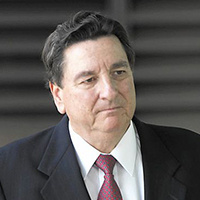Bangor Estate Lawyer, Pennsylvania
Sponsored Law Firm
-
 x
x

Click For More Info:
-
Ryan, Morton & Imms, LLC
220 West Gay Street West Chester, PA 19380» view mapEstate and Business Law The Lawyers on Your Side
We are the lawyers you would like to have on your side in a legal matter. Please contact us should you need legal advice or assistance.
610-430-1425
Nicholas R. Sabatine
✓ VERIFIEDAccident & Injury, Divorce & Family Law, Estate, Criminal, Business
When you've been injured in an accident that was caused by another's negligence or carelessness, you want to do everything possible to make sure your ... (more)
James G. Murphy
Family Law, Banking & Finance, Wills & Probate, Construction
Status: In Good Standing Licensed: 37 Years
Lori J. Cerato
Estate Administration, Estate Planning, Elder Law, Bad Faith Insurance
Status: In Good Standing Licensed: 31 Years
David J. Ceraul
Real Estate, Wills & Probate, Trusts, Family Law
Status: In Good Standing Licensed: 44 Years
Lori Ann Stauffer
Power of Attorney, Traffic, Estate, Divorce & Family Law, Bankruptcy & Debt
Status: In Good Standing Licensed: 8 Years
William J. Reaser
Real Estate, Immigration, Estate, Divorce & Family Law, Business
Status: In Good Standing
Scott M. Amori
Real Estate, Estate Planning, Family Law, Business Organization
Status: In Good Standing Licensed: 29 Years
 Richard H. Morton West Chester, PA
Richard H. Morton West Chester, PA AboutRyan, Morton & Imms, LLC
AboutRyan, Morton & Imms, LLC

